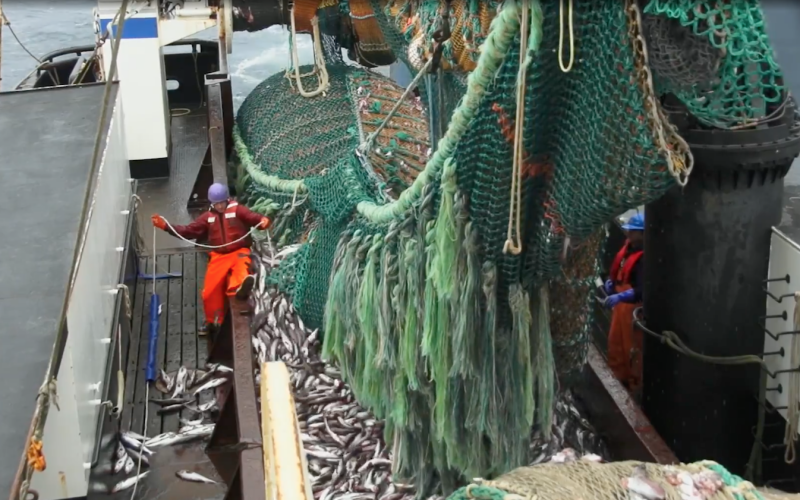Alaska Native and fisheries conservation organizations have gone to federal court in support of a lawsuit challenging how the National Marine Fisheries Service manages North Pacific trawl fisheries.
The amicus curiae (“friend of the court”) brief is a response to the lawsuit brought by the Association of Village Council Presidents, Tanana Chiefs Conference, and city officials of Bethel, Alaska, against federal fisheries managers. The lawsuit alleges that NMFS has “violated the National Environmental Policy Act by authorizing large-scale industrial fishing companies to catch billions of pounds of fish without appropriately considering the impacts in light of rapid environmental changes, ongoing species collapses, and closures on in-river salmon fisheries,” according to the supporters.
It’s the latest legal maneuver in the ongoing fight between the trawler fleet and other advocacy groups over salmon bycatch and environmental effects.
“If successful, the litigation could lead to better consideration of the impacts of industrial fishing and precautionary measures designed to minimize bycatch and killing of species like salmon, herring, crab and halibut,” according to a joint statement by SalmonState and the allied groups.
“Arctic, Yukon and Kuskokwim river salmon populations are in crisis, devastating food security and threatening food sovereignty, endangering ways of life central to who we are as Indigenous people,” said Laureli Ivanoff, executive director for Native Peoples Action.
“Meanwhile, as our ability to harvest salmon is shut down or severely reduced, NMFS is relying on an outdated ecological analysis to increase the quota for the trawl fleet," said Ivanoff. "With this potential ruling the court has the opportunity to set fisheries management on the right track for a better future for all Alaskans.”
“Fisheries managers and associated scientists are telling the public that everything is changing wildly and rapidly in Alaska’s oceans, but when it comes to industrial-scale trawling they are locked into an outdated and inflexible management system not at all responsive to those changes," says SalmonState’s Tim Bristol. “Everyone but the trawlers are giving something up. In some cases, people are giving up everything. Incredibly, at the same time, the agency is actually increasing the trawlers' catch. We support this lawsuit because we see and feel the sense of urgency all around us. We need to stop the bleeding now.”
“We are fully supportive of AVCP and TCC’s litigation,” said Becca Robbins Gisclair, Senior Director of Arctic Programs for Ocean Conservancy. “The North Pacific ecosystem is undergoing rapid and fundamental change. The National Marine Fisheries Service and North Pacific Fishery Management Council must make fundamental changes to prevent the collapse of our once-vibrant ocean ecosystems and the communities that have been part of them for millenia.”
The North Pacific Fishery Management Council and NMFS have been besieged in recent years by the groups demanding tighter controls on the trawl fishery – most recently a recommendation for a “hard cap” on chum salmon bycatch at 500,000 fish. Other proposals have ranged from such hard caps to complete trawl area closures in the Bering Sea.
“Commercial, sport, traditional and charter fisheries have been shuttered or severely reduced for the first time ever,” according to SalmonState and allied groups.
“Western Alaska salmon stocks have crashed. ‘Midwater’ trawlers permitted to trawl in sensitive areas have been shown to actually drag the bottom with their heavy nets between 40 percent to 90 percent of the time,” the groups assert.







